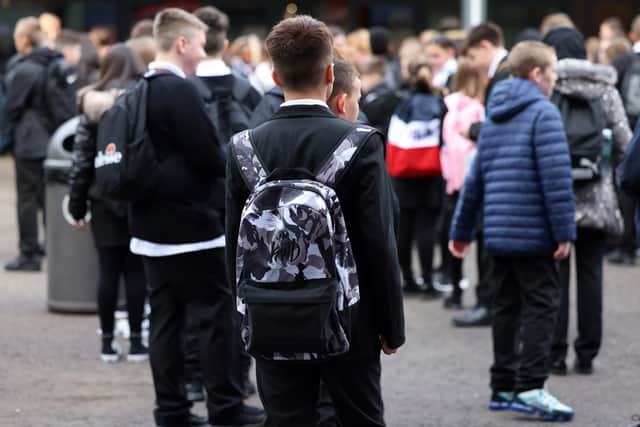Poorer GCSE pupils in Nottinghamshire nearly two years behind richer classmates
and live on Freeview channel 276
The Education Policy Institute (EPI) said the failure to close the national attainment gap will alarm policymakers and undermine Prime Minister Boris Johnson's ‘levelling up’ agenda.
The EPI’s annual report shows disadvantaged GCSE students in Nottinghamshire were 18.1 months of learning behind their better-off peers nationally in 2019.
However, this has shrunk by 2.8 months since 2012.


Advertisement
Advertisement
A fifth of the area's secondary school pupils were classed as disadvantaged, meaning they were eligible for free school meals at any point in the last six years.
The figures also show that seven per cent are defined as persistently disadvantaged – eligible for free school meals for 80 per cent or more of their school life.
Researchers at the EPI said a rise in persistent poverty had stunted progress in closing the gap nationally over the last five years, with the poorest GCSE students still an average of 18.1 months behind.
Last year, the EPI estimated it would take more than 500 years to eliminate the education gap, but this year's data suggests the gap is no longer closing at all.
Advertisement
Advertisement
David Laws, executive chairman of the think tank, said: “It is deeply concerning that our country entered the pandemic with such a lack of progress in this key area of social policy, and the Government urgently needs to put in place new policy measures to help poor children to start to close the gap again.”
The education gap also exists for disadvantaged young children in Nottinghamshire, with five-year-olds trailing by 6.6 months and primary school pupils 11.2 months behind.
Jo Hutchinson, report author and director of social mobility and vulnerable learners at the EPI, said vulnerable children are at risk of falling further behind because of lockdown.
He added: “There is now abundant evidence that poverty and social vulnerability require urgent action both in and outside of school.”
A Department for Education spokesman said the Government’s £1 billion Covid catch-up package would tackle the impact of lost teaching time, with £350 million for disadvantaged students.